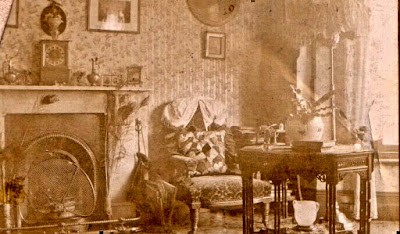Signs for Lost Children: Respectability is all in this an Untidy World... Mari Howard
One thing which has really struck me reading these novels, and was brought to the fore of all our minds in the past week or so, is that the position of male and female has not changed since Victorian times. What do I mean by this? Surely today's woman is an independent person, capable of earning her own living in any field she chooses, spending her own money without necessary reference to any male relative? Of course she has the vote, won by the hard campaigning of the suffragettes, and we hope should she be walking alone at night, she would not be taken for a prostitute, picked up by the police, and subjected to an ignominious, degrading, painful (and ultimately meaningless) “virginity test”**.
I say we hope -- this lawful abuse of women was a common occurrence at the time Bodies of Light is set. The streets were dangerous, made even more dangerous for a woman on her own, (for what decent woman would be out alone in the dark? it was argued). Obviously, only one who is a sex worker, seeking clients. Such was male thinking of the time, at least where the law and the police were concerned. Does your memory resonate here with events of the past week? Is this not a hideous irony?
In this sequel to Bodies of Light, entitled Signs for Lost Children, Sarah Moss has written how her protagonist of that story, newly qualified as a medical doctor among the very few women so qualified at the time, and also newly married, begins work in the Truro asylum. I will not spoil the story for you, but her conclusion, after six months working in the terrible conditions and reflecting on the treatment of the assumed mentally ill, is this: "It is not that some people's minds are so fragile that they require the permanent protection of an institution but that some people's homes are crazier than institutions for the mad." *
As anyone who has read Bodies of Light will know, Alethea - known as Ally - was raised by a kind and ineffectual father more concerned with his art than his children's welfare, and a mother fanatically obsessed with the plight of the poor, especially of poor women. This wasn’t bad in itself, but it was carried out as an all-engaging duty, accompanied by contempt for all those who weren’t concerned. She also skimped on any comfort both for herself and for her family, denying warmth (physical and emotional), interesting food, and more. Whether her motivation came from religion or not, her attitude towards her children and all other middle-class people amounted to hatred for soft and easy lives. Ally, already rejected as an infant due to her mother’s post-natal depression, suffered terribly from her mother’s cruelty. It is surely this which gave her adult self insight and compassion into how asylums were being used, and the (convenient?) medical assumption that all unconventional behaviour must be the result of madness. One example from the inmates whom she had to treat is of a teenage girl who constantly attempts to take her own life: clearly this poor girl had suffered rape, (possibly within her family?). Totally traumatised, she had been committed to the asylum as mentally ill. After all, this tidied life up, didn’t it?
As a professionally qualified woman herself, Ally at a low point thinks about public attitudes: she was, in their eyes, ‘An unnatural, undomesticated being, very probably subject to mental instability herself, for why else would a woman declare herself unsatisfied by her own family life and seek to usurp the feminine role?’
It is not really the place here to continue with descriptions of the treatments - to discuss whether the attitude comes from the practice of religion (no doubt we have often seen its misuse across the centuries and across the world). The salient point for us today is that we have been woken up to the continuing existence, hardly camouflaged by talk about equality, of institutionalised misogyny, and this supported by some of those very women who have benefited from the chance to appear to compete and succeed in what continues to be a man's world.
* apologies for no page numbers, as reading an old Kindle
** 'The intrusive tests are considered a violation of human rights by the World Health Organization (WHO) and United Nations, which want to see them banned. e.g.https://www.bbc.co.uk/news/newsbeat-55078634)'

Comments